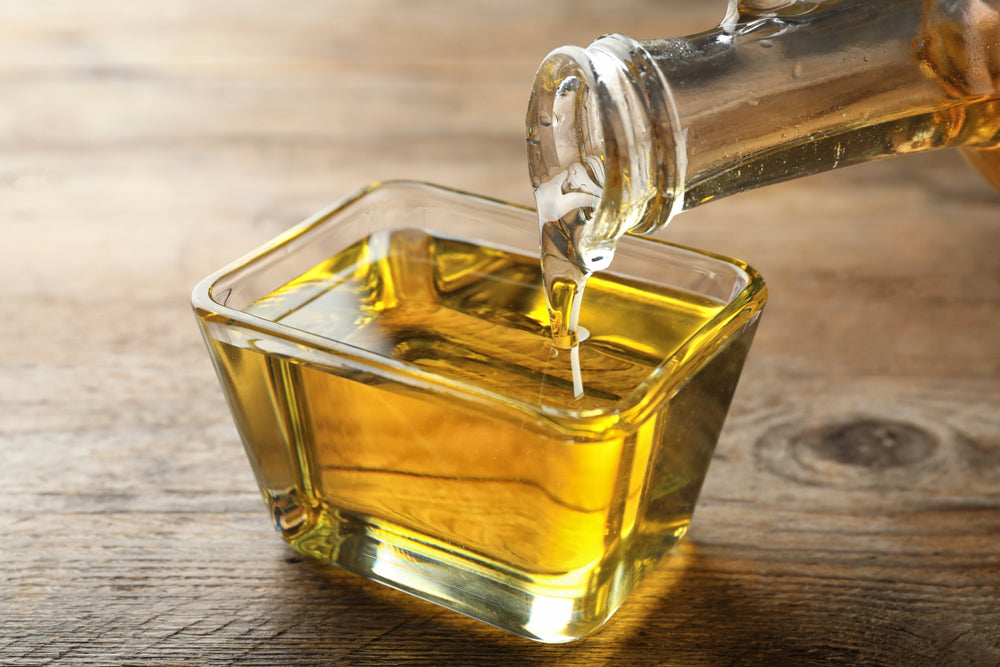Seed Oils: Are They Really as Bad as They Say?

Toxic. Obesity-causing. A recipe for heart problems and a slew of auto-immune disorders. Are seed oils really all that? While typing “seed oils” into any search engine and scrolling through the results would likely have you screaming, crying, and rushing to evict those bottles of canola/sunflower/corn oil from your kitchen, recent research suggests seed oils’ bad reputation isn’t warranted.
So, go ahead. Put those bottles back onto the shelves (don’t worry—we’ll wait). Done? Great. Now, let’s dive into why seed oils aren’t harmful.
What are seed oils?
Seed oils are a subset of vegetable oils. And, as the name implies, seed oils are any oils that are derived from seeds. The eight most common types of seed oils include:
- Canola oil
- Corn oil
- Cottonseed oil
- Soy oil
- Sunflower oil
- Safflower oil
- Grapeseed oil
- Rice bran oil
Are seed oils unhealthy?
So, this is where it might get a little confusing. According to current dietary guidelines from the American Heart Association (AHA), we should all strive to make sure our diet includes polyunsaturated fats (PUFAs) instead of saturated and trans fats.
In order of least to most healthy: trans fats, saturated fats, and PUFAs
This bit’s easy to understand:
- Trans fats: Consuming trans fats, especially those from hydrogenated oils, delivers a dangerous one-two punch of raising your LDL (“bad”) cholesterol and lowering your HDL (“good”) cholesterol. This increases your risk of developing cardiovascular disease, type 2 diabetes, and certain types of cancer—like breast, prostate, and colorectal cancer.
- Saturated fats: While not as harmful as trans fats, saturated fats still aren't the best choice for fats. Research shows that eating too much saturated fat can increase LDL ("bad") and blood cholesterol levels.
- Polyunsaturated fats: Unlike trans fats and saturated fats, PUFAs can help reduce your LDL (“bad”) cholesterol levels, improving heart health.
What’s slightly trickier to understand, however, is that the AHA recommends several types of seed oils (e.g., soybean, corn, and sunflower oil) as good sources of dietary PUFA.
If PUFAs are healthy, why do people hate PUFA-containing seed oils?
Answer: because they got it wrong. Below, we’ll debunk the three most common claims about seed oils’ health-harming effects.
#1: PUFAs increase inflammation
As it turns out, there are two types of PUFAs: omega-3 fatty acids and omega-6 fatty acids. Omega-3 fats are anti-inflammatory, while omega-6 fats tend to be more pro-inflammatory. And guess which type PUFA seed oils are particularly rich in? Uh-huh—pro-inflammatory omega-6 fats.
But here’s the thing. Science shows that this doesn’t translate into poorer health outcomes:
- A 2019 meta-analysis of 30 studies published in Circulation found that individuals with higher amounts of linoleic acid (LA), which accounts for approximately 90% of dietary omega-6 PUFA intake, were 7% less likely to develop heart disease.
- A 2018 study published in the American Journal of Clinical Nutrition followed nearly 2,500 men for an average of 22 years and found that those with the highest blood levels of LA had a 43% lower risk of dying from any disease during the study period than those with the lowest.
#2: Disruption of the optimal omega-3 to omega-6 ratio
It’s said that eating lots of seed oils could bulldoze our omega-6-to-omega-3 consumption ratio way beyond the “ideal ratio” of anywhere between 1:1 and 4:1. Turns out, there’s no solid scientific rationale for a specific recommendation for your omega-6-to-omega-3 consumption ratio.
This study, for instance, showed that individuals with either higher levels of omega-3s or -6s had lower levels of inflammatory compounds.
#3: Prone to oxidation
This is partially true. One thing you need to know about seed oils is that they typically have a high smoke point—this means they won’t break down and release harmful compounds (e.g., free radicals and acrolein) unless repeatedly heated at high temperatures.
Fortunately, this isn’t a huge concern in the average home kitchen; instead, it’s more likely to happen in scenarios where oil is consistently reheated at scorching hot temperatures, like in commercial kitchens.
Bottom line? Moderation is the name of the game
There’s no need to eliminate seed oils from your diet. That said, you shouldn’t take this as a sign to start drenching your foods in seed oils.
Ultimately, remember that seed oils are loaded with calorie-laden fats (nine calories per gram, to be exact), so limiting your fat consumption to 20 to 35% of your total calorie consumption is a good idea.

Newsletter signup
Join the Joy Organics Family
Sign up and get updates on new products, as well as special coupons and discounts.
testimonials
What Our Clients Say
“This is a company that truly cares about its customers and providing the best CBD products currently available on the market.”










Join In On The Conversation
Your email address will not be published. Required fields are marked *
Comments will be approved before showing up.